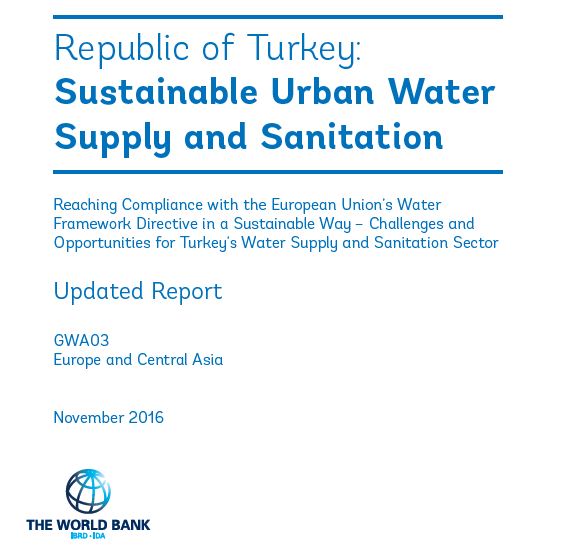Republic of Turkey: Sustainable Urban Water Supply and Sanitation
Turkey has a long history in dealing with water supply and sanitation, and has set a clear and ambitious roadmap for the sector. The considerable efforts and investments made in the last 15 years to expand access to water supply, wastewater collection, and treatment has placed Turkey at a level equivalent to or above that of EU member states in the Danube River Basin. However, this has impacted the balance sheet of most SKIs, both in terms of debt levels and increased O&M costs. As a result, tariff levels set to cover expenditures are close to or above the tariff level defined as affordable. Yet, additional investments are needed to bring about compliance with the standards set in Turkey. These will result in debt repayment and additional incremental O&M costs that could result in tariff increases which will challenge the limit of affordable tariffs. This is a real challenge on the sustainability of a WSS service provider. It will become an even greater challenge as demographic and economic growths increase demand and as climate changes negatively affects the resources available to meet the demand. This situation calls for more investment efficiency for new infrastructure and operations performance improvement for existing facilities. The above section presents fundamental questions worth further analysis, so that the great efforts being undertaken in the water supply and sanitation sector can lead to provision of sustainable service to the entire population in order to support Turkey’s efforts to bring about a better environmental and economic future. The World Bank has provided support to help countries tackle these challenges all over the world, and stands ready to support Turkey in its endeavor.
